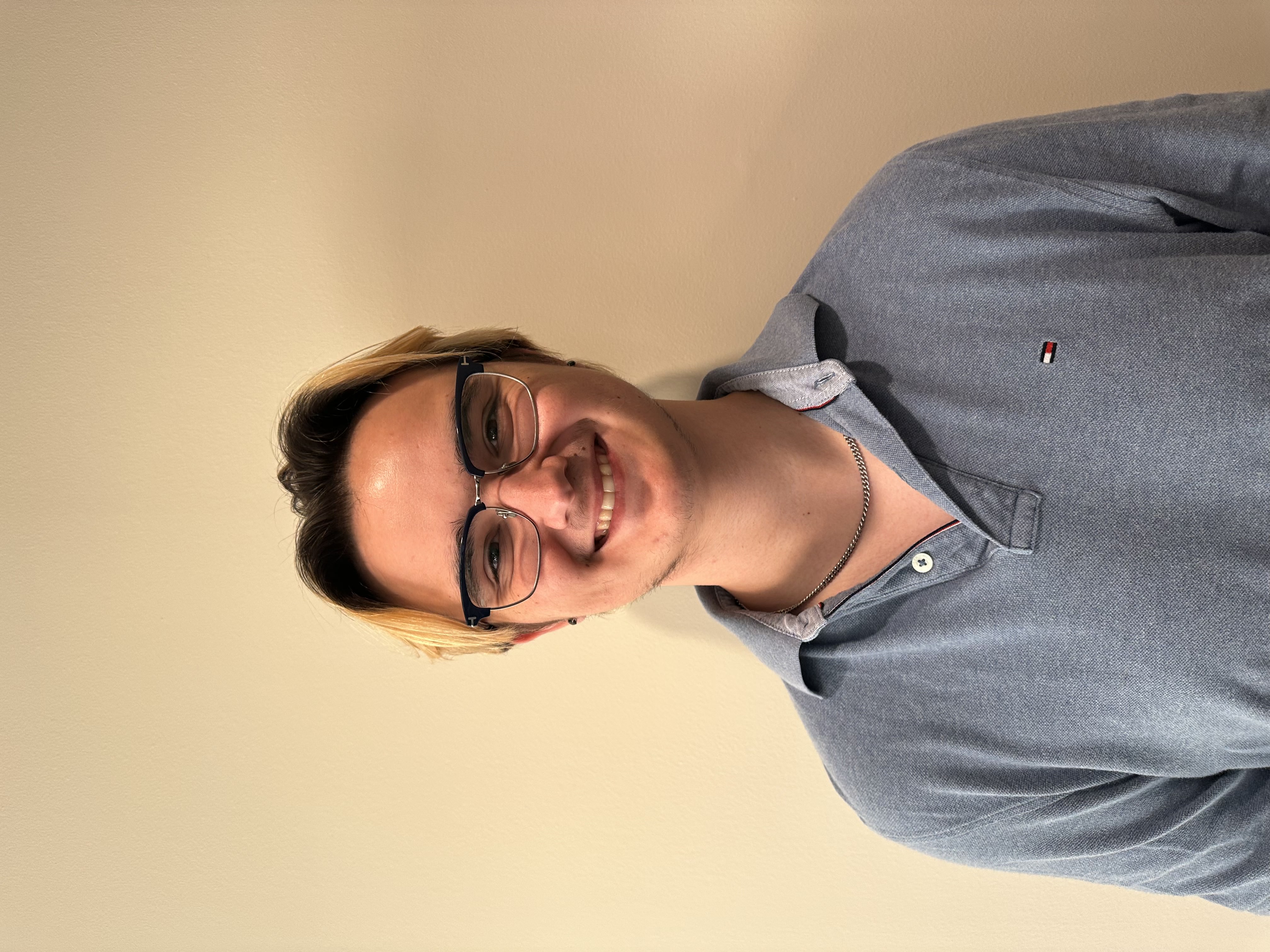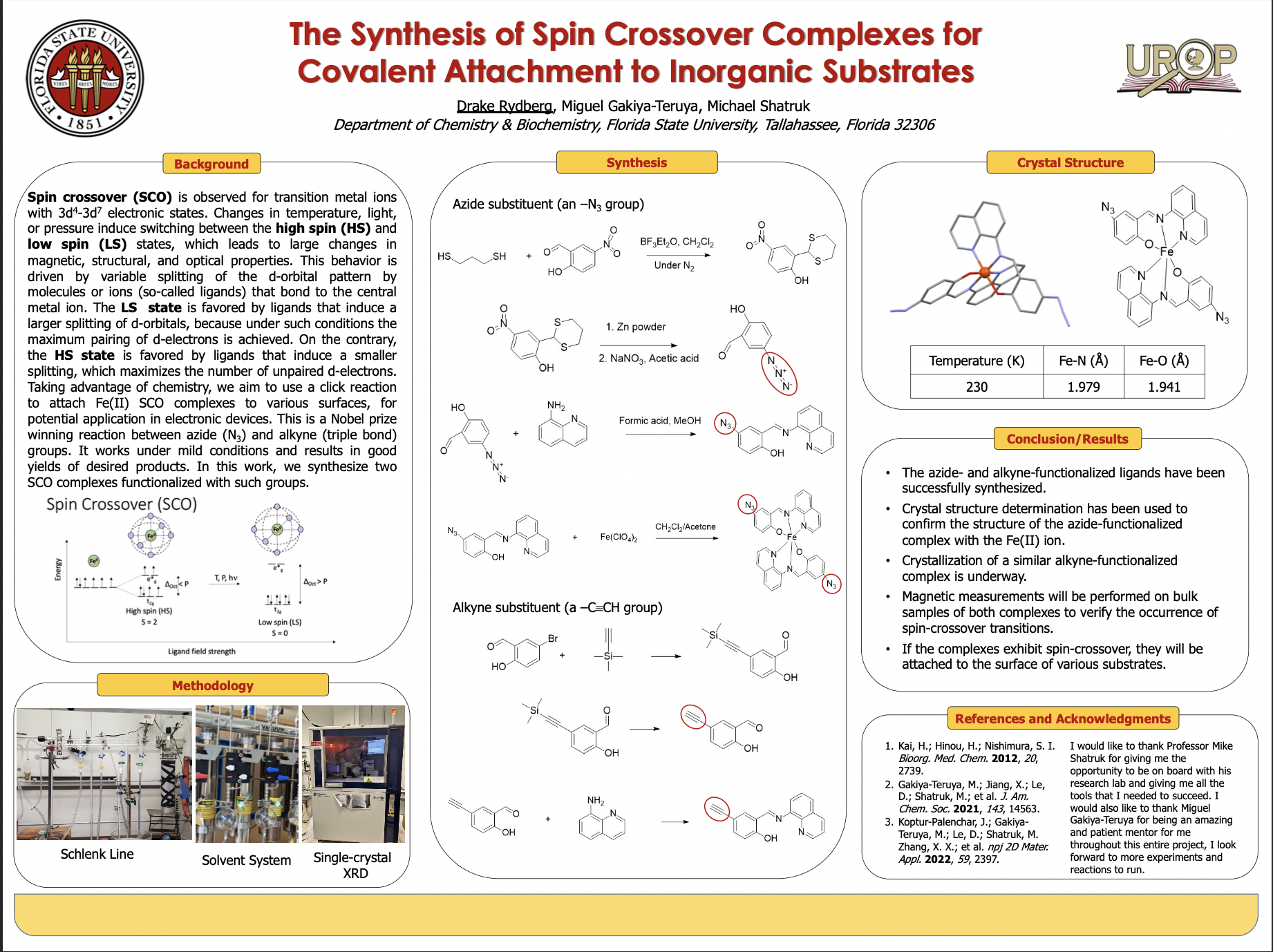Research Symposium
23rd annual Undergraduate Research Symposium, April 6, 2023
Drake Rydberg Poster Session 2: 1:30 pm - 2:30 pm/ Poster #93

BIO
I'm Drake Rydberg, from West Palm Beach, Florida. In the past academic semester, I've been introduced to chemistry research and have been fascinated by the ways in which I can apply the knowledge I have and the knowledge I learn on a daily basis. I plan on being a research oriented professional in my field once I've done all the schooling I can. Outside of school and the lab, I spend most of my time reading books, hanging out with my girlfriend, playing chess, and playing video games.
The Synthesis of Spin Crossover Complexes for Covalent Attachment to Inorganic Substrates
Authors: Drake Rydberg, Michael ShatrukStudent Major: Chemistry
Mentor: Michael Shatruk
Mentor's Department: Department of Chemistry Mentor's College: Cornell University (2001-03) & Texas A&M University (2003-07) Co-Presenters:
Abstract
Spin crossover (SCO) is a property that is present in 3d transition metals with electronic configuration of d4-d7. Under an external stimulus, such as temperature, light, or pressure, the SCO complex switches between the high spin (HS) and low spin (LS) states, which leads to large changes in magnetic, structural, and optical properties. This type of behavior has been studied extensively in bulk materials, but there is a strong current interest to investigate SCO in thin films on different substrates to implement them in electronic and sensing devices. There are different ways to prepare thin films such as vapor diffusion, exfoliation, deposition from solution or by a reaction between the target molecule and some anchor molecule pre-deposited on the substrate. Taking advantage of chemistry, we will use a click reaction to link our iron (Fe) SCO complex to a surface. The click reaction is a Nobel prize winning reaction between an azide (N3) and alkyne (triple bond) groups. It works under mild conditions and results in good yields of desired products. In this work, we synthesize the complex Fe[qsal(N3)]2 and then deposit it on a substrate via click chemistry, taking advantage of the terminal azide groups in the structure of the complex. We also report the structural and magnetic properties of these SCO materials.
Keywords: SCO, Chemistry, 3DMaterials, ClickChemistry


